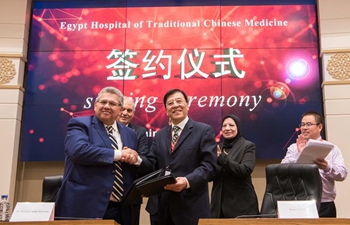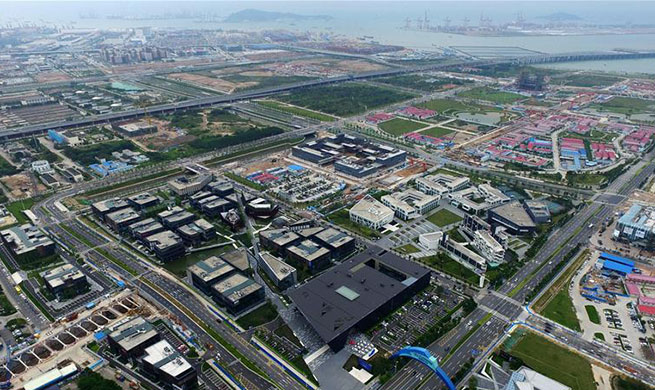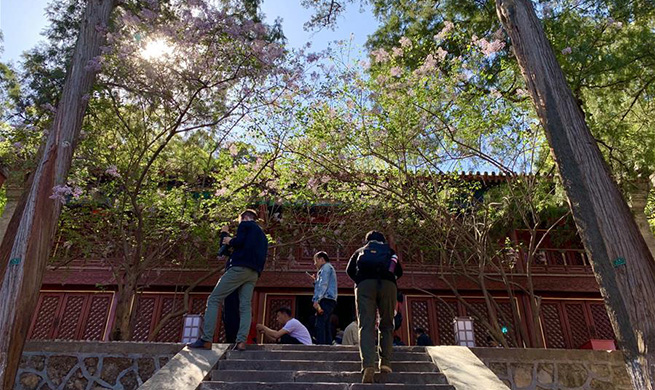NAIROBI, April 15 (Xinhua) -- The UN Environment on Tuesday called for the revision of education curriculum in Africa to promote climate change awareness among the youth.
Richard Munang, UN Environment climate change coordinator for Africa, said the continent's current education curriculum requires an overhaul in order for it to address pressing challenges like global warming.
"The existing curriculum is incapable of driving climate action, hence the need to nurture new skills that are required to turning challenges into opportunities," Munang told a forum in Nairobi.
He said that school curriculum in most parts of Africa is still based on the colonial system where the focus was to build human capital to serve foreign interest and not to drive continental development.
As a result, he said, there is a significant disconnect between the challenges facing the continent and the ability of people who have gone through the educational systems to offer solutions.
Munang said the theoretical knowledge that is being offered by the existing curriculum has to be put to test by embracing ICT (informational and communication technologies) in devising practical workable solutions in the context of the challenges and opportunities.
"The use of ICT can be an enabler to drive transformational climate action for people and the planet in general," he added.
Munang attributed low employment opportunities in the continent to lack of alignment of the education sector to emerging opportunities.
"We require an education system that can churn out skilled personnel who can fabricate affordable solar driers to save the continent from food waste," he said.
Traditional open sun-drying is no longer workable due to climate change, hence the need for innovative drying solutions that have an auxiliary biogas-powered drying mechanism that can ensure drying effectiveness is not compromised even during rains, Munang said.
Such solutions call for appropriately skilled manpower in the first step that can match the changing climate that causes more variability but presents an opportunity for additional innovation, he said.
Citing an example of Rwanda that traditionally harvests maize in the dry season but is now harvesting during peak rains, Munang noted that a skilled human capable of converting challenges into enterprise opportunities is the most sovereign capital and investment for a country, a continent and the globe.
"We need to foster an enabling policy by refining and overhauling curriculum as needed by mainstreaming entrepreneurship education so we can truly refine what it means to be entrepreneurial through hands-on mentorship where graduates are taken through structural guidance to improve, refine, and align the skills to industrialize the continent's agro-value chains," he said.
















